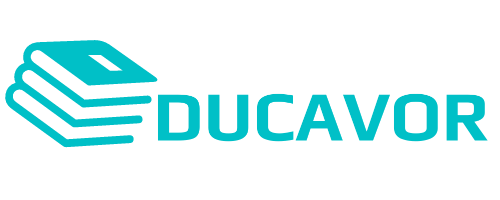In today’s digital age, the ability to code has become an invaluable skill. Whether you aspire to build websites, develop apps, or analyze data, coding serves as the foundation for countless career paths. Online coding courses have emerged as a popular and accessible way for individuals like you to learn programming from the comfort of your own home.
With a plethora of resources available, you can tailor your learning experience to fit your schedule, budget, and personal interests. The rise of online education has democratized learning, allowing anyone with an internet connection to access high-quality coding instruction. You no longer need to enroll in a traditional university or attend in-person classes to gain coding skills.
Instead, you can choose from a variety of platforms that offer courses designed for beginners, intermediates, and advanced learners alike. This flexibility not only makes learning more convenient but also empowers you to take control of your educational journey.
Key Takeaways
- Online coding courses offer accessible ways for beginners to start programming.
- Free courses provide foundational skills without financial commitment.
- Paid courses often include more comprehensive content and support.
- Popular beginner-friendly languages include Python, JavaScript, and HTML/CSS.
- Coding bootcamps offer intensive, structured learning for faster skill acquisition.
Free Online Coding Courses for Beginners
If you’re just starting out and want to dip your toes into the world of coding without financial commitment, free online coding courses are an excellent option. Platforms like Codecademy, Coursera, and edX offer introductory courses that cover the basics of programming languages such as Python, JavaScript, and HTML/CSS. These courses often include interactive exercises and projects that allow you to practice what you learn in real-time.
One of the significant advantages of free courses is that they provide a risk-free environment for you to explore your interest in coding. You can experiment with different languages and concepts without the pressure of a financial investment. Additionally, many free courses come with community support, where you can connect with fellow learners and instructors to ask questions and share insights.
This collaborative aspect can enhance your learning experience and help you stay motivated as you embark on your coding journey.
Paid Online Coding Courses for Beginners

While free courses are a great starting point, you may find that paid online coding courses offer more comprehensive content and additional resources. Platforms like Udemy, Pluralsight, and Skillshare provide a wide range of paid courses that delve deeper into specific programming languages and frameworks. These courses often include video lectures, quizzes, and hands-on projects that can significantly enhance your understanding of coding concepts.
Investing in a paid course can also provide you with access to expert instructors who bring real-world experience to their teaching. Many paid courses offer personalized feedback on assignments and projects, which can be invaluable as you work to improve your skills. Furthermore, some platforms provide certificates upon completion, which can be a great addition to your resume or LinkedIn profile, showcasing your commitment to learning and professional development.
Best Programming Languages for Beginners
Choosing the right programming language is crucial when you’re just starting out. Some languages are more beginner-friendly than others, making them ideal for newcomers like you.
It’s widely used in various fields such as web development, data analysis, artificial intelligence, and more. Learning Python can open doors to numerous opportunities in the tech industry. JavaScript is another excellent choice for beginners, especially if you’re interested in web development.
As the backbone of interactive websites, JavaScript allows you to create dynamic content and enhance user experiences. Additionally, HTML and CSS are essential for anyone looking to build websites from scratch. While HTML structures the content of a webpage, CSS styles it, making these two languages fundamental for aspiring web developers.
Online Coding Bootcamps for Beginners
If you’re looking for an immersive learning experience that accelerates your coding skills, online coding bootcamps might be the perfect fit for you. These intensive programs are designed to take you from novice to job-ready in a matter of weeks or months. Bootcamps like General Assembly, Flatiron School, and Le Wagon offer structured curricula that cover essential programming languages and frameworks while also focusing on practical skills.
One of the key benefits of bootcamps is their emphasis on hands-on projects and real-world applications. You’ll work on building actual applications or websites, which not only reinforces your learning but also provides you with a portfolio to showcase to potential employers. Additionally, many bootcamps offer career support services, including resume reviews and interview preparation, which can be invaluable as you transition into the job market.
Tips for Choosing the Right Online Coding Course

With so many options available, selecting the right online coding course can feel overwhelming. Start by assessing your goals: Are you looking to learn coding for personal projects, or do you have a specific career path in mind? Understanding your objectives will help narrow down your choices.
Next, consider your preferred learning style. Do you thrive in structured environments with set deadlines, or do you prefer self-paced learning? This will influence whether you choose a bootcamp or an online course.
Additionally, read reviews and testimonials from previous students to gauge the quality of the course content and instruction. Look for courses that offer hands-on projects and community support, as these elements can significantly enhance your learning experience.
Advantages of Learning Coding Online
Learning coding online comes with numerous advantages that traditional classroom settings may not offer. One of the most significant benefits is flexibility; you can learn at your own pace and on your own schedule. This is particularly advantageous if you have other commitments such as work or family responsibilities.
You can choose when and where to study, making it easier to fit learning into your life. Another advantage is the vast array of resources available at your fingertips. Online platforms often provide access to forums, video tutorials, documentation, and additional reading materials that can enhance your understanding of complex topics.
Furthermore, the global nature of online learning allows you to connect with peers from around the world, fostering diverse perspectives and collaborative opportunities that enrich your educational experience.
Taking the First Step in Learning Coding
Embarking on your coding journey is an exciting endeavor that opens up a world of possibilities. Whether you choose free resources or invest in paid courses or bootcamps, the key is to take that first step. Remember that every expert was once a beginner; persistence and practice are essential components of mastering any skill.
As you explore different programming languages and concepts, stay curious and embrace challenges as opportunities for growth. Ultimately, learning coding online empowers you to shape your future in ways that align with your passions and career aspirations. So go ahead—dive into the world of coding!
With determination and the right resources at your disposal, you’ll be well on your way to becoming proficient in this essential skill that continues to shape our digital landscape.
If you’re looking to enhance your coding skills further, you might find our article on the Best Homeschool Curriculum for ADHD particularly interesting. While it focuses on educational resources for ADHD learners, it also highlights various online courses, including coding options that cater to different learning styles. This can be a great complement to the top online coding courses for beginners, whether you’re considering free or paid options.
FAQs
What are the benefits of taking online coding courses for beginners?
Online coding courses offer flexibility, allowing learners to study at their own pace and schedule. They provide access to a wide range of programming languages and topics, often include interactive exercises and projects, and can be more affordable compared to traditional education. Additionally, many courses offer certificates that can enhance a resume.
Are there free online coding courses suitable for beginners?
Yes, there are many free online coding courses designed specifically for beginners. Platforms like Codecademy, freeCodeCamp, and Coursera offer introductory courses in various programming languages without any cost.
What programming languages are commonly taught in beginner coding courses?
Beginner coding courses often focus on languages such as Python, JavaScript, HTML/CSS, and Java. These languages are popular due to their readability, wide usage, and applicability in different areas of software development.
How do paid coding courses differ from free ones?
Paid coding courses typically offer more comprehensive content, personalized support, mentorship, and additional resources such as projects, quizzes, and career services. They may also provide certification upon completion, which can be valuable for job seekers.
Can beginners with no prior experience succeed in online coding courses?
Yes, many online coding courses are designed for absolute beginners and start with fundamental concepts. With consistent practice and dedication, beginners can successfully learn coding through these courses.
What should I consider when choosing an online coding course?
Consider factors such as the programming language taught, course curriculum, instructor expertise, course format (video lectures, interactive coding), reviews from other learners, cost, and whether the course offers certification or career support.
Do online coding courses provide hands-on coding experience?
Most reputable online coding courses include interactive coding exercises, projects, and assignments that allow learners to practice and apply what they have learned in real-time.
Is certification from online coding courses recognized by employers?
While certifications from well-known platforms can add value to a resume, employers often prioritize practical skills and project experience. Certifications can demonstrate commitment and foundational knowledge but should be complemented with a portfolio of work.
How long do beginner coding courses typically take to complete?
The duration varies widely depending on the course structure and learner pace. Some beginner courses can be completed in a few weeks with part-time study, while more comprehensive programs may take several months.
Can online coding courses help me switch careers into software development?
Yes, many individuals use online coding courses as a stepping stone to transition into software development careers. Combining coursework with practical projects, internships, or additional training can improve job prospects.

